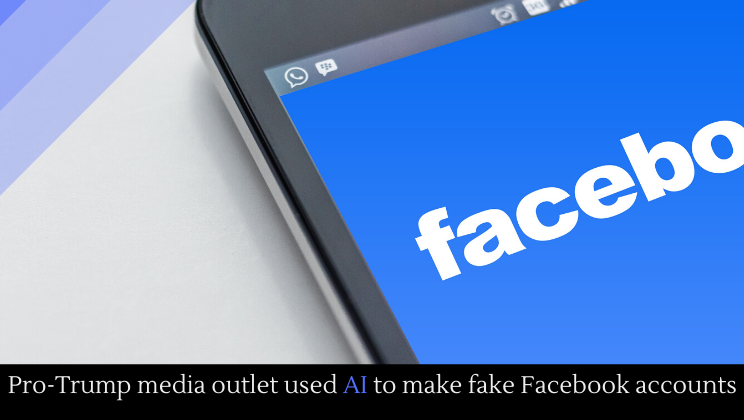Pro-Trump media outlet used AI to make fake Facebook accounts
Posted by Thomas Bush / December 22, 2019
Epoch Times, a media outlet whose tagline is, ironically, “Truth and Tradition,” used artificial intelligence technology to get fake faces to apply to equally fake Facebook accounts. Why go through the trouble? To troll the internet in support of Donald Trump, because, you know, he’s so massively popular that he needs a bunch of fake support, too.
Donald Trump is, in this author’s extremely credible opinion (because this is the internet, so naturally if I’m writing on it I’m credible), the first president elected “by” the internet. Or, more specifically, by the internet’s ability to create borderline insane echo chambers that eventually make their way into the real world. Here’s how it works:
- More extreme opinions spark more outrage or resonance, and those things lead to clicks and ad money. So, people naturally get more extreme.
- There is absolutely zero human feedback online. You can’t read people’s faces or body language, so there are no emotional checks and balances. It’s much easier to make an extreme claim if no one is there putting social or psychological pressure on you to chill out.
- Building off 2, I think people get angrier faster when they’re interacting online without those emotional cues. I think the same thing happens with road rage. It’s easy to get really angry really fast because you skip the normal pre-fight rituals of yelling, shoving, etc. which might otherwise cool things down.
- Usually 2 and 2 mean that people with unusual or overly-extreme opinions get sorted out through usual social mechanisms. That doesn’t happen online, and worse, social networks form made up of exclusively people with a similar thinking.
- And taking 4 further, without a relatively diverse (not even that diverse, really) community, no one is going to check someone with extreme opinions. What we see online is actually the opposite: the most extreme opinion tends to win in these kind of communities.
- It takes a lot more mental and emotional effort to be neutral––or even to entertain neutrality. It’s so much easier to fall into an extreme opinion than to think critically and balance the two extremes.
- Extremity begets extremity. I think of it as conspiratorial thinking. You ever notice how conspiracy theorists see every single piece of evidence as supporting their theory, even if it doesn’t? Extreme thinking seems to work similarly––once you put yourself at a pole, everything supports your thinking. One historian called it the “inner accelerator” of conspiratorial thinking. That phrase always sticks with me.
As an aside, I think 1-7 contributes to the increasing vitriol in (identity) politics, and the almost incredible speed of social change in the last decade––online conversations about these issues have inner accelerators that make them more extreme, and that’s tended to shift the offline conversation. I think JK Rowling’s recent tweet and the accompanying scandal is a good example of this. 10 years ago, someone saying biological sex is a fact would be among the most unremarkable things someone could say. Now, it means you hate a group of people. I’m not weighing in on the validity of either side of that question, just commenting on the speed of the change. Compare it to the gay rights movement, which took literal decades to make even minor progress.
Trump is another result of the inner accelerator, and that accelerator led “Epoch Times” to make fake Facebook accounts.
More news.
Comments are off for this post.